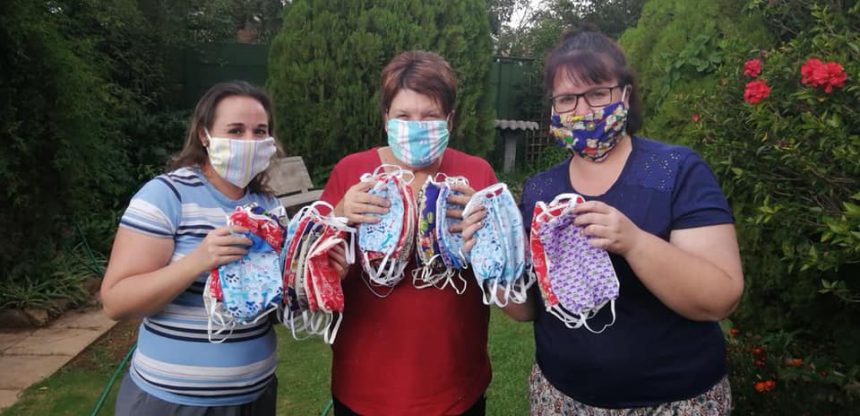Healthcare workers in South Africa know there will be a shortage of PPE once COVID-19 really hits their health services. Like many other palliative care providers, Sunflower Children’s Hospice is worried that morphine and other essential medicines will be in short supply for community organizations as it will be needed for hospitals.
South Africa locked down on March 27 for a mandatory 21-day quarantine – just as the number of COVID-19 cases reached 1,000. It is one of the strictest lockdowns in the world – no jogging outside, no sales of alcohol or cigarettes, no dog-walking, no leaving home except for essential trips, with prison or heavy fines for those who don’t adhere.
Almost eight million people in South Africa are infected with HIV, and a high number with co-infection of TB, with TB being the highest cause of mortality at present. People with serious underlying conditions like these are likely to be at higher risk for severe illness from COVID-19.
“We wait to experience what will happen when Covid-19 meets HIV, TB, malnutrition and poverty,” said Joan Marston of Sunflower Children’s Hospice.
By the time the lockdown began, the team at Sunflower had already gone into the poorest township areas to ensure the most vulnerable of their 300 children continue to receive both hospice home care and extra food parcels. Most of these patients live in very poor conditions, are exposed to many infections and dangers, and often don’t have access to running water. The Sunflower team is still visiting children in the community who are very vulnerable – doing the best they can with limited access to personal protective equipment (PPE).
The team at Sunflower Children’s Hospice reached out to their community through social media looking for the following donations, among others:
- Extra clothes (and material to sew) for the staff in Sunflower House so that they can change when they come on duty and not take any infection back to their families.
- Winter seeds or bulbs so they can make the garden bright and beautiful for the children to be outside as much as possible.
- Garden furniture in good condition so the staff and children can spend as much time outside as possible.
- 25 L plastic containers with taps for their community families who have no running water.
They have been encouraged by community organizations which are assisting them with donations of food and volunteers who have made a mountain of cloth masks.
Marston is also Vice Chair of PatchSA (Palliative Treatment for Children Southern Africa) which has an excellent COVID-19 resource page at patchsa.org/covid-19qa.

